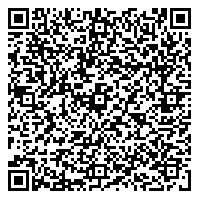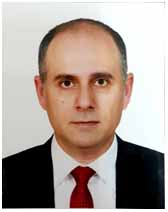The potential of the strategic recruitment of the Hashed al-Shaabi (Popular Mobilisation) after The Islamic State of Iraq and the Levant (ISIL)
DOI:
https://doi.org/10.25255/jss.2020.9.1.112.134Palavras-chave:
Hashed al-Shaabi, Shiites, Iraq, jihad, ISILResumo
After getting rid of ISIL's military presence in Iraq, the problem of having a strategic vision in recruiting the PMF strengthened national security. In addition to the internal and external challenges that do not agree on a unified vision about these forces, which now has a law and regulation governing its work. In light of these changes, a vision is formed of the possibilities of employing these forces and making them an independent institution linked to the commander in chief of the Iraqi armed forces while preserving their national identity.
The study was divided into two major parts. The first included the political and doctrinal dimensions of issuing the fatwa of jihad and the stage that witnessed the establishment of Hashed al-Shaabi. The second part included the strategic vision of employing Hashed al-Shaabi in a post- ISIL period. This part dealt with the obstacles to the strategic recruitment of Hashed al-Shaabi. Internal obstacles such as terrorism, political sectarianism and administrative corruption. The external obstacles dealt with the positions of some international and regional forces toward Hashed al-Shaabi and It's relationship with Iran. The last part discussed the possibilities of strategic recruitment of Hashed al-Shaabi in Iraq.
The study relied on a number of references that dealt with the subject of Hashed al-Shaabi in several languages, such as books, analysis of research centers and academic articles for specialized researchers and media such as newspapers and television. In addition to the laws and decisions of the Iraqi government issued about Hashed al-Shaabi.
Downloads
Referências
Abbas, Z. (2013).Irak’ta Şii Merciliğinin Siyasi Rolü, Önsöz Yayınları, İstanbul, 2013.
Al-Gabouri, A.The Role of the Popular Mobilization Forces in the Iraqi Political Process, 01.10.2018, Viewed on: 23.05.2019, On:https://www.washingtoninstitute.org/fikraforum/view/the-role-of-the-popular-mobilization-forces-in-the-iraqi-political-process.
Al jazeera Türk, Kaçırılan Türk işçilerden ilk görüntü, 11.09.2015, Tarihte Görüldü: 25.06.2019, Şuradan:http://www.aljazeera.com.tr/haber/kacirilan-turk-iscilerden-ilk-goruntu.
Brammer, A. & Milton-Edwards, B. Iraq’s security dilemma and the intractable problem of the PMF, 23.10.2017, Viewed On: 23.05.2019, On:https://www.opendemocracy.net/en/north-africa-west-asia/iraq-security-mosul-coalition-us-pmf/.
Ferec, M.Türkiye'de Caferi/Azeri kanalları neden kapatıldı?, Knal7, 31.01.2017,Tarihte Görüldü: 25.06.2019, Şuradan:https://goo.gl/ci68b4.
Haber Türk, Irak'ta Türk işçiler kaçırıldı, 02.09.2015,Tarihte Görüldü: 25.06.2019, Şuradan: https://www.haberturk.com/dunya/haber/1123315-irakta-turk-isciler-kacirildi.
Hürriyet Gazetesi, Irak’ta beklenen oldu: PKK ve Haşdi Şabi arasında çatışma çıktı, 22.9.2017,Tarihte Görüldü: 25.06.2019, Şuradan:https://goo.gl/hWn7.
Oda TV, AKP'li Ensarioğlu: "Haşdi Şabi'yi terörör gütü olarak görüyoruz", 16.10.2016, https://goo.gl/HWQ3Cz,22.03.2019.
ORSAM,Tarihte Görüldü: 25.06.2019, Şuradan:https://orsam.org.tr/.
SETA,Tarihte Görüldü: 25.06.2019, Şuradan:https://www.setav.org/.
Williams, S.Oil Companies’ Bet on Kurdistan Turns Sour, 26.04.2016, The Wall Street Journal, Viewed On: 28.06.2019https://www.wsj.com/articles/oil-companies-bet-on-kurdistan-turns-sour-1461708524?mod=e2tw&cb=logged0.6321830346714705.
Yeni Şafak, Haşdi Şabi'den küstah tehdit: Türkiye'ye savaş açarız, 16.12.2016,Tarihte Görüldü: 25.06.2019, Şuradan:https://www.yenisafak.com/dunya/hasdi-sabiden-kustah-tehdit-turkiyeye-savas-acariz-2581657.











 a Creative Commons Attribution 4.0 International License.
a Creative Commons Attribution 4.0 International License.

